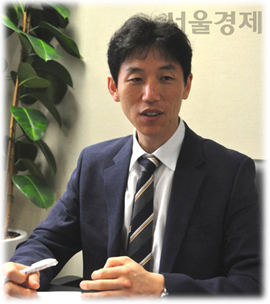| 일 | 월 | 화 | 수 | 목 | 금 | 토 |
|---|---|---|---|---|---|---|
| 1 | 2 | 3 | 4 | 5 | 6 | 7 |
| 8 | 9 | 10 | 11 | 12 | 13 | 14 |
| 15 | 16 | 17 | 18 | 19 | 20 | 21 |
| 22 | 23 | 24 | 25 | 26 | 27 | 28 |
- mechanism of politics
- political organization
- Order of Choice
- Political Regimes
- Canonical Politics
- Political power
- Cohesion Force
- Task Delegates of the Ruler: Inner Circle
- Value Systems
- power and organization
- the 2nd law
- Regime Change
- Orderliness of Choice
- Political Regime
- Samjae Capacity
- survival process theory
- political phenomena
- politics
- politics and war
- Political Change
- Power
- Operation of the 2nd Law
- Mathematical Model of politics
- 1st Law of politics
- new political science
- Differences in Individual Abilities and Tendencies
- the 3rd Law of politics
- Samjae Capacities
- politics of Inner Circle
- Mathematical Model of political science
- Today
- Total
New Political Science
b. ㉠ Efficiency of Cooperative Relationships 본문
b. ㉠ Efficiency of Cooperative Relationships
Political Science 2023. 12. 14. 03:21㉠ Efficiency of Cooperative Relationships
Firstly, the starting point of the concentration of power is the efficiency of cooperative relationships. If there is no coordination of opinions among political actors, the political organization will fail, and this often happens when power is not concentrated.
Originally, it is always difficult to coordinate opinions among people. This is shown extremely by the events following the reign of Emperor Septimius Severus in Rome. After the death of Emperor Septimius Severus, his two sons, Caracalla and Geta, despite their father's dying wish for them to reconcile, became extremely estranged and divided the palace into two halves, each with their own entrance. They quarreled over Rome's judicial and administrative matters and sought ways to assassinate each other, eventually deciding to divide the empire. In order to prevent the division of the empire, their mother, Julia Domna, had to assassinate Geta. While not as extreme, everyone's (political) opinions always conflict. When Anna was crowned Empress of Russia in 1730, the council of eight nobles, known as the Chudov Monastery, always quarreled over differing opinions, and in the legislative committee formed during Catherine the Great's reign, members were always divided. In 1777, the adoption of the United States Constitution was also difficult due to widespread disagreements, and the same was true when the Provisional Government was formed in South Korea in 1945.
The two main reasons why political actors fail to reach a consensus are, first, because their interests conflict with each other (at the macro- and middle-levels), and second, because emotional factors (at the middle- and micro-levels) often make them resentful of each other. Men and women have different desires, and the profits of sellers and buyers conflict with each other, as do the profits of superiors and subordinates. Furthermore, individuals often clash with each other due to past grudges, jealousy towards their rivals, or minor linguistic expressions, making it difficult for them to reach an agreement even on matters that could bring them a joint profit. In many cases, these two factors are combined.
Due to the difficulty in achieving consensus, a single decision- making authority is realistically necessary to continuously coordinate opinions on various issues. In order to prevent tribalism and promote stability within the empire, the Umayyad Caliphs Muawiya (661-680) and Al-Walid (705-715) of the Islamic Umayyad dynasty had to strengthen central political power. Similarly, in Russia, the United States, and South Korea, significant national power is concentrated in one person, the president. Therefore, the power system is fundamentally a system of relationships in which a few individuals wield power and others obey them[Ch.2.6].
The following [Diag.3.리.6] can be called the basic structure of command-obedience relationship, which is a single-layer decision-making structure. Regardless of their complexity, all command-obedience structures are nothing but a combination of these single-layer decision-making structures.

'Mechanism of Politics' 카테고리의 다른 글
| b. Wealth Gap (0) | 2023.12.17 |
|---|---|
| Chapter 4. A. (1) Conditions for the Birth & Death of P. Organizations (0) | 2023.12.14 |
| b. Concentration of Power and its Cause (0) | 2023.12.14 |
| (2) a. When the 2nd Law Operates in A Single Layer (0) | 2023.12.14 |
| b. ㉢ Realm of Canonical Politics (0) | 2023.12.14 |

